I sometimes wonder what feeling would Narayan Gopal be having when he sang – “Aljhecha Kya re Pachyawri timro chiya ko botaima.” Was “chiya ko bot” a resemblance of wealth? Was “chiyabari” a happy and prosperous place? While the former may still be true, the latter is most certainly not – and that has today become a concern for every citizen in the Hills – be it the residents or the non-residents of the tea gardens.
While the miseries have taken to be the most common part of any tea garden worker’s life, they surface now and then for the non-residents of the tea gardens in the form of stories and videos. These miseries exemplify the apathy and indifference of the Governments and administration towards the tea gardens and its people. These miseries are also deeply rooted down in the history of the tea gardens. The tea gardens still function under the Plantations Labour Act, 1951. While the situations in the tea gardens have changed dynamically through the time, the tea garden is still running under the act since around the time of the independence. The Act also rests a lot of power in the hands of the state government.
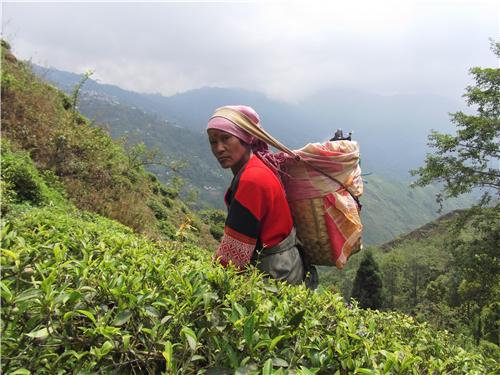
The low wages in the tea gardens are a result of the unique wage model in the tea gardens through the history, where the labours were required to pay partially in cash and partially in kind. The tea garden management were required to provide the labours with houses, annual house repairing costs, ration, medical facilities, educational facilities and other necessities along with the money wages. As such, the money wages only constituted a part of the wage and the management were able to keep it low, since they were providing with other essentials to compensate for the low wages. But slowly with time, the tea garden managements started withdrawing the provisions one after another. They, however, did not increase the money component of the wages, while other provisions were being taken off. Even if we do not consider the depletion of the payments in kind, the wages have still crawled forward at a very negligible pace, meanwhile inflation, through the decades, have shot over the roof.
Another reason why the wages in the tea gardens have kept low, while the miseries have kept high is the strong nexus of the tea garden owners in the state of West Bengal – financially and politically. The Tea Garden owners form a very strong association in the state and have known to have a very strong influence on the Government through the times. In fact, it has been a known fact that acquiring the tea garden leases often require connections. The nexus of the tea garden owners and the government has always played its part in ensuring low wages in the tea gardens, and almost every time, the ball has been rolled in favour of the tea garden owners in the times of crises arising.
The crises on most occasions surround the issue of bonus or the shutting down of the tea gardens at the time of bonus distribution. The tea garden workers sustain at a below subsistence level of income, and whatever they earn through the year is mostly spent on their regular consumption expenditure – leaving them without any savings. However, one time during the year, the celebration of their biggest festival, Dashain, requires a large chunk of expenses. As they do not have any means of savings, the workers have mostly relied on the 20% bonus that they get at the advent of the festival months, to fare of with all the expenses that are involved. The 20% bonus has played a very big role in the lives of the families across the tea garden plantations.
Even though the Darjeeling region is politically a part of West Bengal, the political parties and the leaders in the hills have always maintained autonomy and political dominance in the region. It would be the regional ruling party or the leaders who would mediate any differences between the tea garden management and the workers and would ensure their wellbeing. Given the fact, any anomalies around the bonus issues were also sorted by the regional leaders and the ruling parties, and the process of the bonus disbursal would not always be complicated.
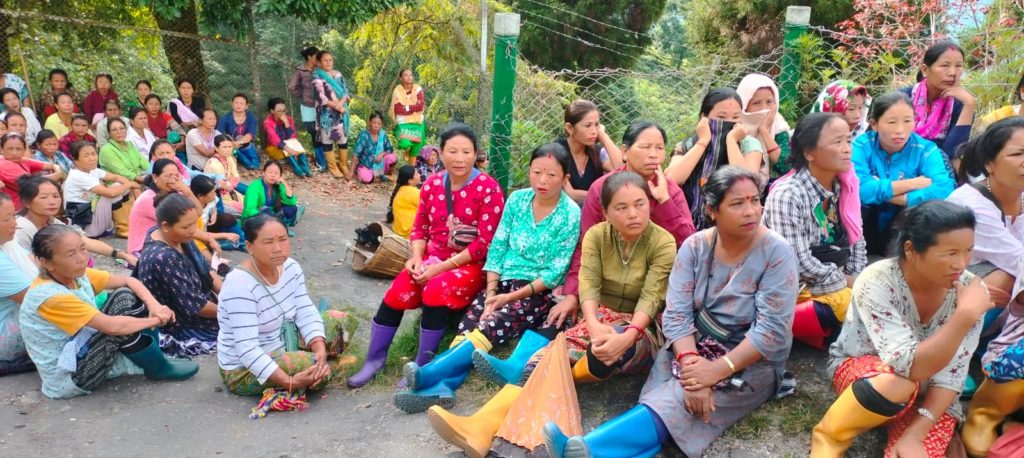
But today, as the ruling party in the hills is also largely under the control of the State Government, the political reach of the tea garden owners also extends to the regional leaders – and they have mostly failed to address the issues of the tea garden workers in the recent years. This is where the present-day scenario of the tea gardens becomes interesting.
Given the disappointments faced by the workers in the past years in procuring their bonus, they decided to fight for their own rights this time around and hold up for 20% bonus. None of the political parties or any leader had come forward when the issue was raised by the workers themselves – creating a formidable people’s movement. The leaders, who did not initially care to pay any attention towards the issue, now started to realise that the movement had started gaining momentum, and was receiving support from every corner of the hills. The political parties around the hills did not waste any time in investing in the wave that was created and the movement started seeing representatives carrying all their respective party banners.
The ruling party sent its “trade union” division to represent it, stating that the bonus issue did not concern any political party individually but the entire hills overall and that its trade union was independent of their party and was representing all the workers. However, one could see the party flags and party centric slogans all around the protest site – that came as a clear indication of the party’s attempt to hijack the movement which until now belonged to the people. It has to be remembered that the State Government would be putting pressure on this ally of theirs to handle the issue in their favour.
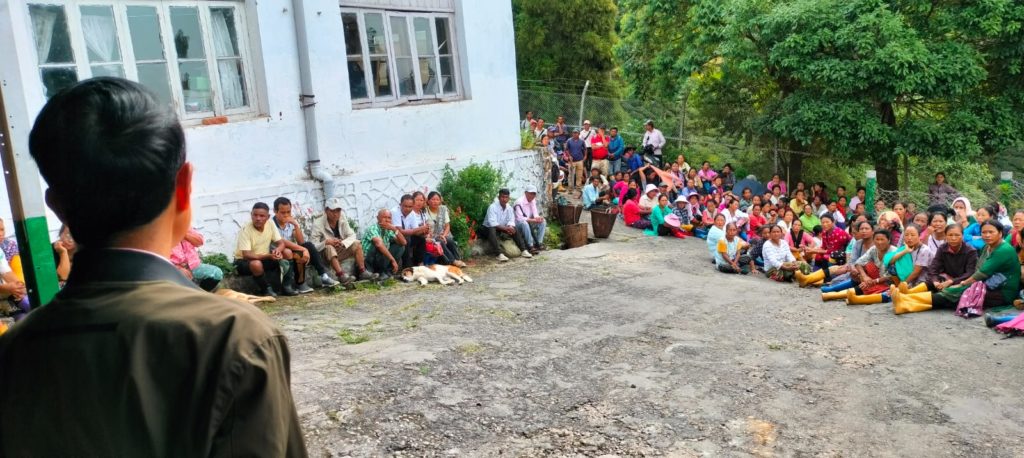
The workers acting independently had issued warnings to shut down the hills indefinitely if the bonus issue wasn’t resolved. Here is where things get interesting. As soon as the news about the failure of the meeting about bonus started floating out, the trade union leaders came out and declared 12 hours all hills strike. The calling out of the 12-hour strike seemed just like an attempt to diffuse the indefinite strike to be called. It can also be ascertained from how, as soon as the 12 hours strike was over, visible efforts were made to discontinue the strike, even though the workers across different tea gardens were pushing to continue with the strike.
It has to be remembered that the State Government would be putting pressure on this ally of theirs to handle the issue in their favour. A 12 hours bandh would better suit the happiness of the state government than an indefinite one, giving the ruling party an opportunity to prove that things were still under their control. In fact, the 12-hour strike was also not very strictly observed in Kalimpong, which happens to be a stronghold of the ruling party. It was the same place where the party had held a large-scale protest with flags and banners for the RG Kar case on behest of the TMC, enforcing a complete shutdown.
It is also noteworthy that when the movement started, it was about the rights of the tea garden labours in terms of bonus. Interestingly, as soon as the political players came in, the term “negotiation” was introduced into the scene, intentionally detouring the entire movement. How can there be a space for negotiation around a given right that a person deserves. Negotiations are inherent to movements where new demands are made, and there is a conflict between two parties about the demand. But when the rights are already at place, who are they negotiating for? – The tea garden owners? The state government?
Now news is coming that a16% bonus has been forcefully distributed among the tea garden labours against their will through digital transfer. Perhaps, it was this forceful digital transfer of the bonus that caused the leader of the Trade Union, affiliated with the ruling party, to become so unwell that he had to be hospitalized.
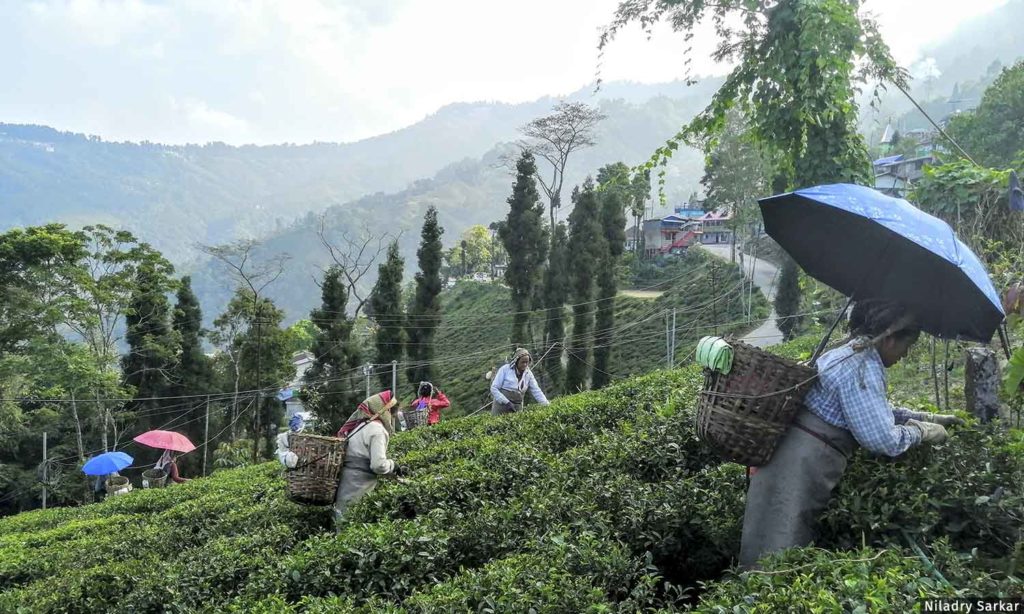
The apathy towards the tea garden workers is a result of a complete indifference of the state government, as well as the central government together. While the state government does not take any initiative to better the condition of the tea garden workers, the central government has also failed to implement the four new labour codes – Code on Wages, Social Security Code, Occupational Safety, Health and Working Conditions Code, and the Industrial Relations Code in West Bengal. Collectively, these Labour Codes provide for higher wages, and a better living and working conditions, yet their implementation in the state of West Bengal has been stalled since these laws were passed by the Parliament of India, and the Central Govt has not been able to pressurize the WB Govt enough to have these laws implemented.
The “chiya ko bot” may still be “sun ko” but “kada chai sun ko bijeko chaina khutta ma – kaada chai dukkha koi bijeko cha”.

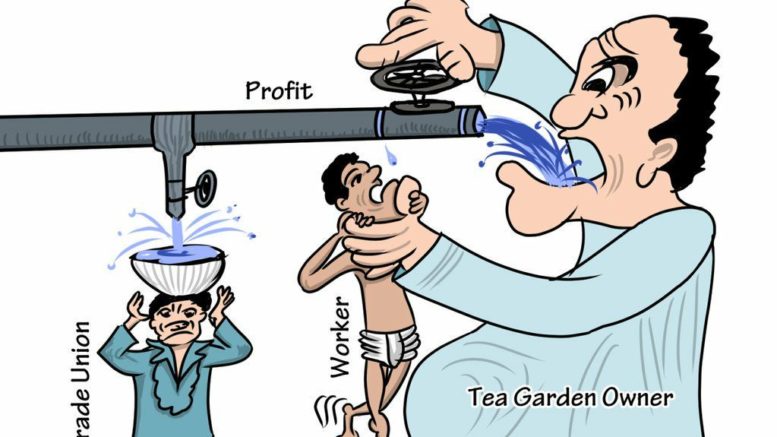



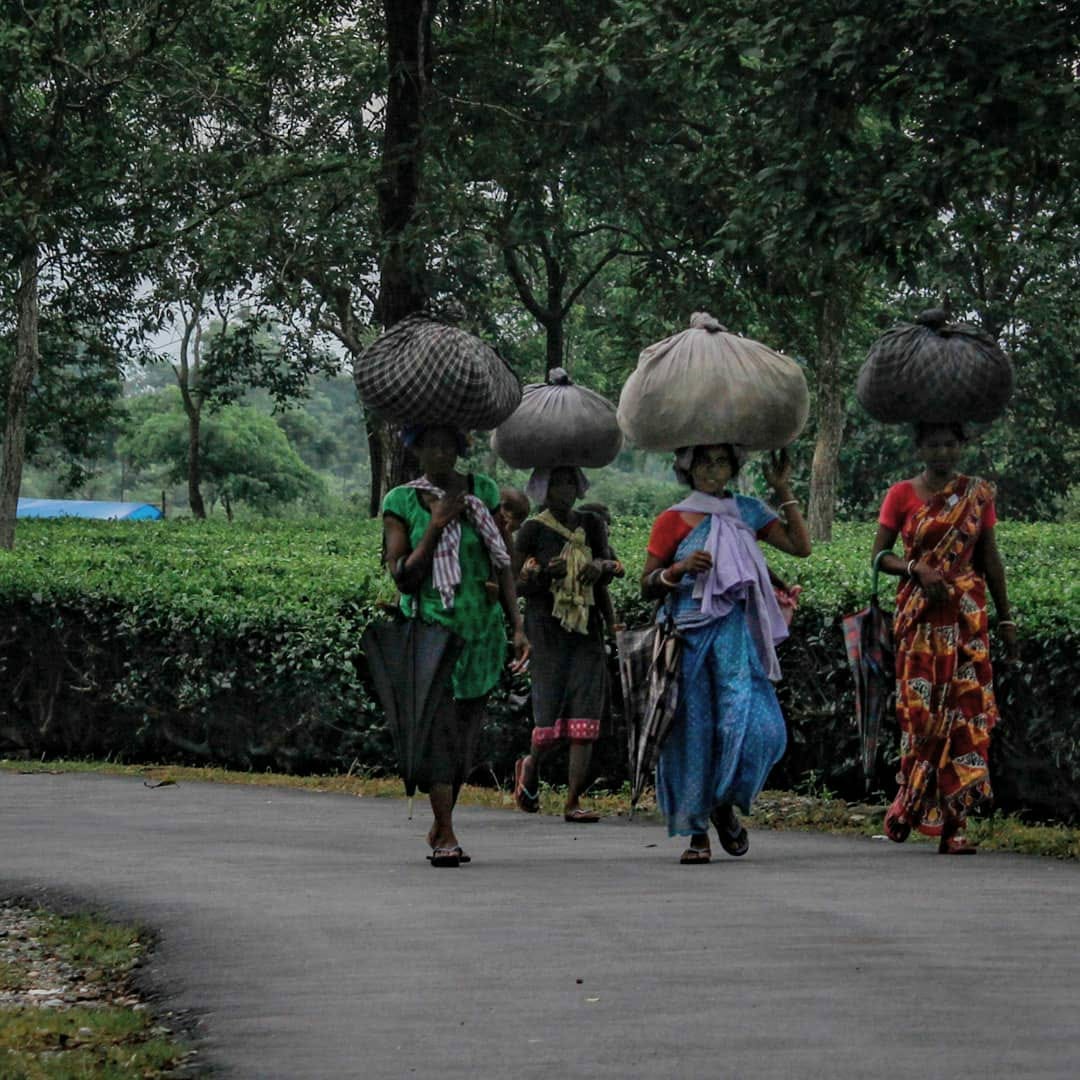
Be the first to comment on "Tea Garden Bonus – Some Thoughts"